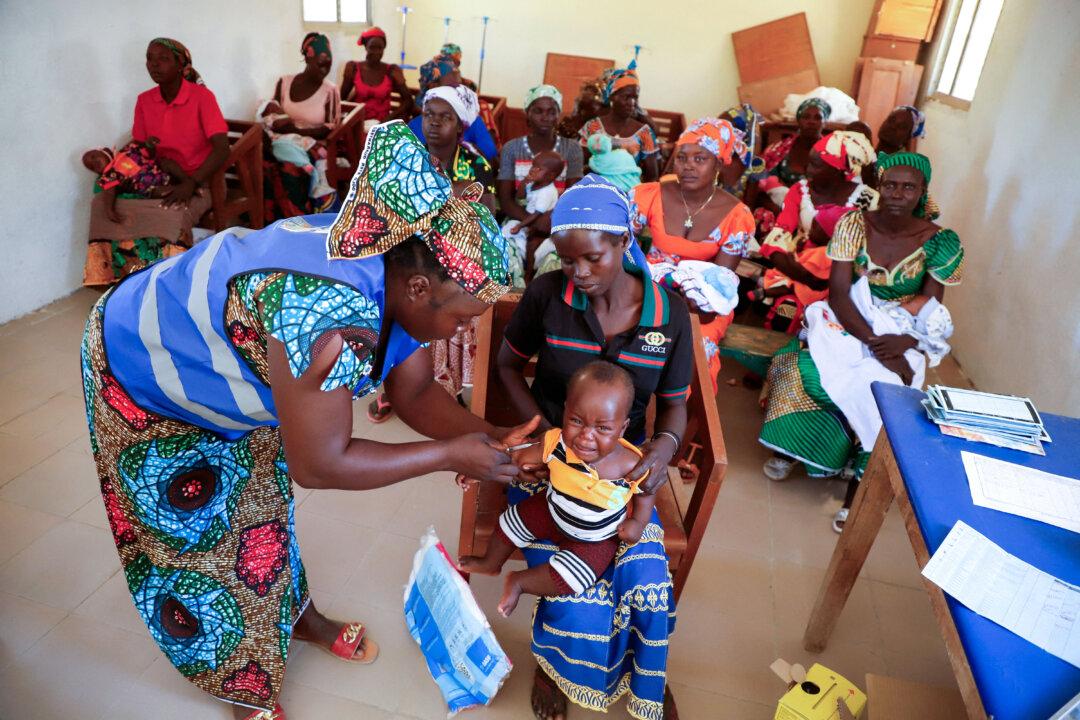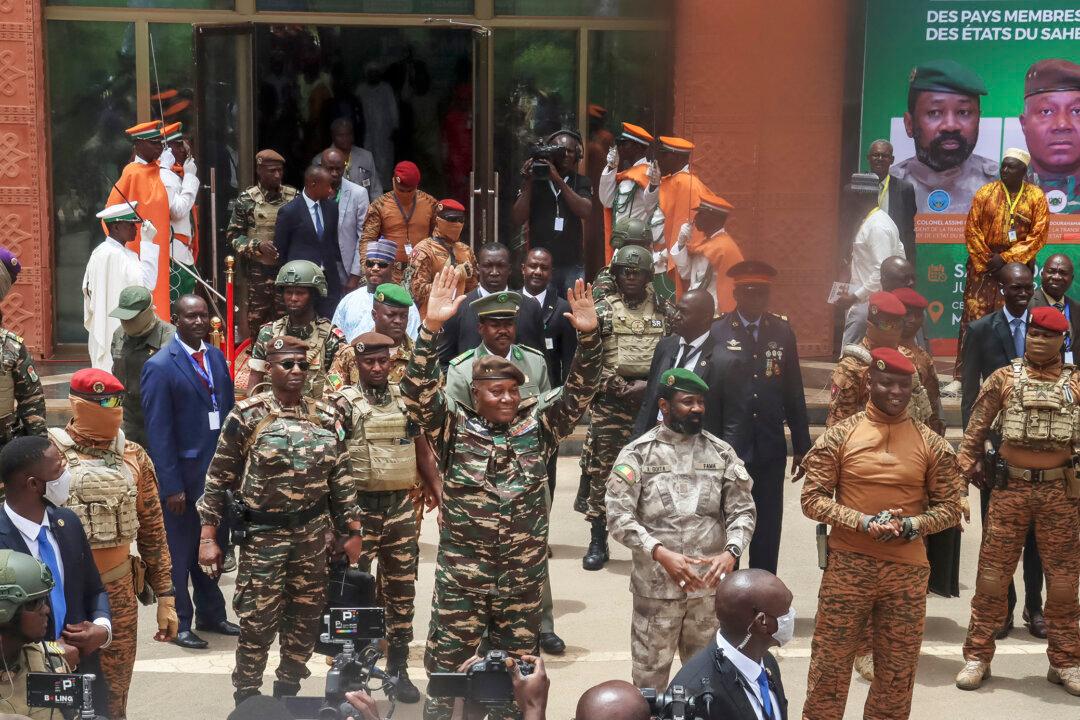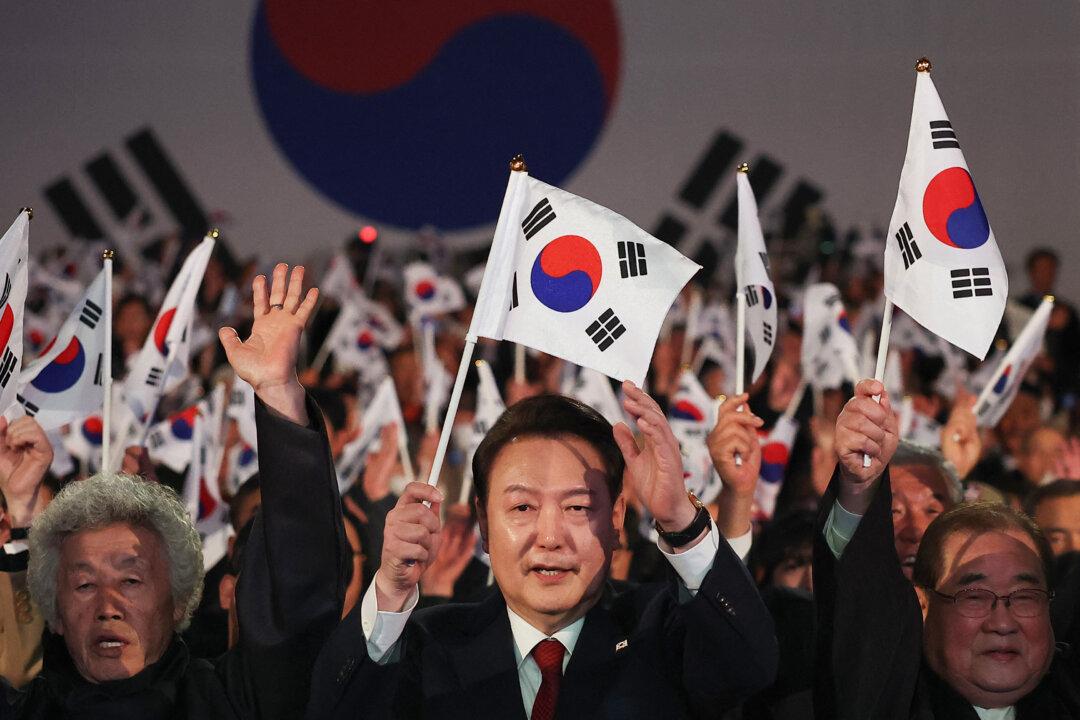“There are no means to earn money from my job [anymore], but I now have the chance to defend my people’s rights and to protect them through advocacy,” Ahmed told The Epoch Times via a messaging app, opting to conceal his location over concern for his safety.
“Many people are suffering, especially those who depend on daily income,” he said.
“Many don’t have the means to buy food. Most markets have been closed. Soldiers and militias have been looting in these markets. No emergency services are present. The state is missing.”
Both claim to be gaining ground, although that may just be a reflection of a “media war,” according to an observer of the unfolding conflict.
“Dagalo wanted a 10-year window, [while] Burhan wanted a two-year window,” Medani told The Epoch Times in an email.
‘Not Inclusive Enough’
He said the framework agreement was “very successful,” and “popular,” and was a good solution to reforming the government, except that it was “not inclusive enough” and the timeline for signing was “too short.”“This was a mistake, but these mechanics can be rectified after this conflict if domestic and external actors learn from their mistakes.”
It was the fourth effort to stop the fighting that resulted from month-long tensions. Several short-lived ceasefires had been agreed upon between the two warring groups over the past week, but all have failed to hold.
The Sudanese health ministry has put the number of deaths so far at nearly 500, with more than 4,000 others wounded.
Some 15.8 million people in Sudan—a third of the population—already were in need of humanitarian aid before the latest violence erupted.
The U.N. refugee agency, UNHCR, stated that it doesn’t yet have estimates for the numbers headed to other surrounding countries, but there have been reports of chaos at the border with Egypt as Sudanese try to get out of their country.
Other nations are working to get their citizens out.
Ahmed told The Epoch Times that Nyala, a city in southwestern Sudan that is the home of the Sudanese armed forces’ headquarters, is a center of fierce fighting.
“The civilians are paying the [price] for this war,” he said.
“Bullets and even tanks are being used by Sudanese and RSF forces where millions of civilians are living. The situation is really tough for everybody in Sudan, especially those living in Khartoum, northern Sudan, and Darfur state.”
Right now, there is no winner or loser in the conflict, according to Ahmed, except the “biggest losers”: the Sudanese people.
“Many civilians have been killed and hundreds injured. Just about 200 meters from my home, my neighbor was killed by live bullets in his home on the first day of fighting. Another neighbor was killed days later. Three of my friends have been wounded.”
Ahmed said that what the Sudanese people have been working to achieve for years has been brought to nothing.
How Did We Get Here?
Dagalo of the RSF paramilitary group and Burhan of the Sudanese armed forces worked together in 2019 to overthrow Sudan’s long-serving leader, Omar al-Bashir.Sudan’s political crisis started in October 2021, when Dagalo and Burhan joined forces and ousted civilian Prime Minister Abdalla Hamdok before reinstating him a month later.
After upending the transition to democracy, however, friction between the Sudanese army and the powerful RSF became increasingly visible in recent months, with conflicting public statements, a heavy military presence in Khartoum, and parallel foreign trips by military and RSF leaders.
Despite the growing differences between the two men, a lifeline appeared when civilian and military parties agreed early this month to strike a new political agreement to name a transitional government and pave the way for elections.
However, the signing of the deal was postponed from April 1 to April 6, before being put off for a second time, with a spokesman for the negotiations saying “outstanding issues” needed to be resolved.
No Wish for Civilian Rule
One way he did so, Barnett said, was by “empowering a series of Darfuri militias“ that were organized into the Rapid Support Forces and essentially became a parallel army to the Sudanese armed forces.“The RSF and SAF cooperated to topple Bashir in 2019 but their rivalry grew more acute after this as both sought to prevent the other from becoming the dominant power in the new regime.”
He said that the new regime was nominally civilian, until a coup in 2021 put the military in charge.
The only thing that the RSF and SAF agreed on was “forestalling” civilian rule, according to Barnett.
“Otherwise, the RSF exploited the coup and stalled the transition to increase its power within Sudan’s politics and economy, which made the SAF uneasy.”
Power Quests ‘At All Costs’
Medani of McGill University said that on paper, the RSF is “more willing” to fall under the civilian leadership since it needs a “constituency.”“But the RSF wants to do so while still being an autonomous military force,” he told The Epoch Times.
“They want to return to power under a military they can control as in the era of Omar Bashir.”
The two military rivals are less likely to bridge their differences unless there is a stalemate after which the international community forces them to do so, Medani said.
“This can be done with targeted sanctions on the financial sources of both generals by the international community pressuring them back to the table with civilian leaders,” he said.
“But if either wins outright he will attempt to consolidate his own rule.”
But Barnett said he believes neither the RSF nor the SAF supports a transition to civilian rule, as both want to “hold power themselves whatever the costs.”
“So whoever wins, it will not be the Sudanese people,” he told The Epoch Times.
Suspected RSF, Wagner Alliance
A recent CNN investigation suggests that the Russian mercenary Wagner Group has been supplying the RSF with missiles to aid its fight against Sudan’s army.“Russia is close to the RSF and certainly sees geopolitical stakes in how this conflict unfolds,” Barnett said.
“Russia is very pragmatic in its relations with African countries; after all, it was cozying up to Bashir for several years before Bashir was toppled and then it managed to adapt quickly to the new reality in Sudan and grow closer to the RSF.
“If the SAF triumph over the RSF, they may be hostile to Moscow for a time owing, which would force Russia to again pivot and adjust its approach.”
Barnett also said that no outcome of the current fighting will end Russian influence in Sudan.
Fight to Retain Wealth
Rather, he claimed, the conflict emanates from the legacy of a regime that used Islamism as an “ideology to rule an authoritarian state.”“This proved to be a failure as evidenced by the revolution of 2018–2019,” Medani told The Epoch Times in an email.
“The root of the problem is the top brass of the army fighting to retain their political power and wealth, and a militia leader trying to do the same.”
“Sudanese civilian society is now struggling for democracy that respects all traditions and ethnicities.”
“The fighting will not stop until one of the leaders eliminates the other, chases him into exile, or one side runs out of ammunition,” he told The Epoch Times in an email.





